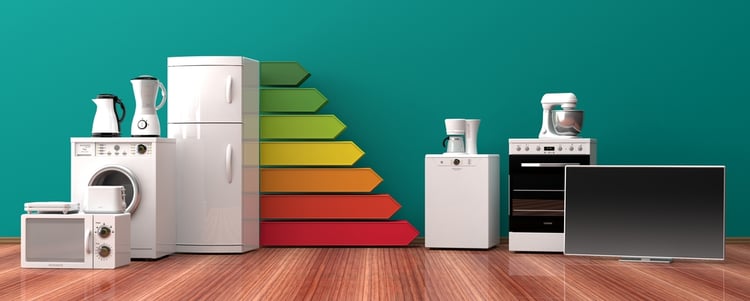When looking for a new house or apartment, there are many factors that seem obvious: layout, location, neighborhood characteristics, nearby schools, local businesses, etc. However, there is another important factor that must be discussed: energy consumption.
An energy-efficient house or apartment will represent a higher initial investment, but the energy savings over the years will outweigh the initial cost. This article summarizes the features you should check out when looking for a new home or apartment.
Get a professional assessment of the property's condition before renting or buying.
Home appliances
Household appliances such as refrigerators, washing machines, dryers, microwaves, ovens, water pumps and dishwashers represent a large portion of energy consumption. If these elements are included in the home, be sure to check the ENERGY STAR ratings. Appliances undergo rigorous testing by third-party laboratories before earning the ENERGY STAR label, meaning energy efficiency is guaranteed.
If you are purchasing a house or apartment without appliances, there is an excellent chance of installing the most efficient products on the market.

Heating systems
Another characteristic to consider in relation to household appliances is their energy source. In general, electrical appliances have a higher operating cost than gas appliances. Pay special attention to space heaters and domestic hot water systems, which can be very expensive to operate using electricity. Heat pumps are an exception as they can compete with gas heaters on running costs without burning a fossil fuel locally.
The way a house is heated has a major impact on energy consumption and heating systems are characterized by their variety. The types of equipment you may encounter include furnaces, boilers, resistance heaters, steam radiators, hot water radiators and underfloor heating. To find the best option, the best recommendation is to contact a professional HVAC engineering company.
Isolation
During an inspection, it may not be possible to check that all walls are well insulated. However, there is a fundamental place that must be inspected before buying a house: the attic. Improperly insulated attics can cause many problems, especially during the winter.
According to ENERGY STAR recommendations, attic insulation should be as high as floor joist insulation with no low spots to maximize efficiency. Home sellers must provide all available information about insulating components such as roofs and walls. If the budget is available, thermal imaging is a very effective method for detecting insulation problems.

windows
If there are air leaks around windows and doors, heating and cooling appliances will have to work harder to maintain the desired temperature. Look for windows with energy efficiency certifications and storm-resistant properties, and also check that they are installed correctly, with no gaps around the edges.
Another thing to consider is the location and number of windows: having many efficient windows will provide energy savings by letting in sunlight. Less artificial lighting is needed, and open windows can provide natural ventilation when the weather is right.
Electrical supplier
In some locations, residential energy users can choose their electricity supplier. By finding a favorable electricity plan, you can achieve significant savings on your energy bill over time. If you are concerned about using electricity from clean sources, suppliers will often disclose their mix of energy sources. For example, you can minimize your environmental impact by finding an electrical supplier that gets most or all of its energy from renewable sources.
Plumbing
The design of the plumbing system has a direct impact on water bills, and there is also an energy cost when a water pump is involved. In the case of domestic hot water systems, consider that there is also a heating cost. Plumbing fixtures such as faucets and drains must have water efficiency ratings – fixtures with the U.S. Environmental Protection Agency's WaterSense label offer water savings of 20% or more.
When checking the kitchen or bathrooms, examine the pipes under the sinks. Watch out for leaks or mold growth: Leaks increase your water bill, while mold has a negative effect on air quality and health. If either problem is found, make sure it is repaired before purchasing or renting.
Consult a professional
Many aspects of mechanical, electrical, and plumbing systems are difficult to evaluate unless you have a professional background in engineering or architecture. Consider hiring a professional to properly inspect the home and ensure all fixtures are up to code. By getting a professional opinion, you protect yourself from unexpected problems and repair costs, and you can negotiate a better price.

